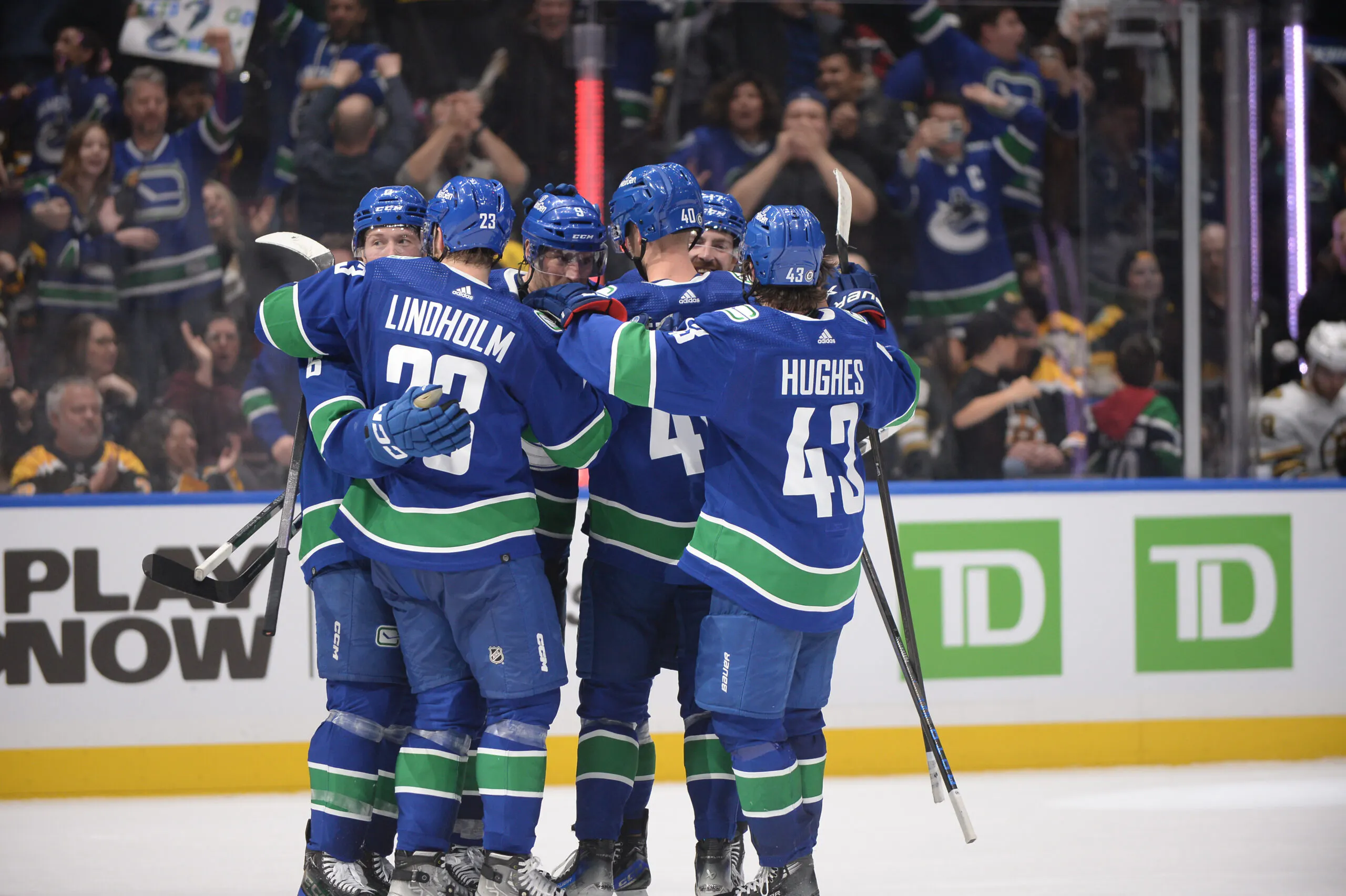WINNIPEG — It’s not Gary Bettman’s presence in Winnipeg that’s alarming to Jets fans. It’s his purpose.
The NHL commissioner drops in on most markets over the course of a typical season. He addressed Winnipeg media last season, opening his remarks by saying he had no emergency to address or news to announce.
This season’s visit came with the perception of higher stakes, but Bettman was unequivocal in his support for True North as an ownership group and Winnipeg as an NHL market.
“I think there was a lot of speculation as to why I was here today,” Bettman said in Winnipeg on Tuesday. “This is a place where hockey matters. I believe that this is a strong NHL market. I believe that ownership has made extraordinary commitments to the Jets, to this arena, and to the downtown area, involving hundreds of millions of dollars. I’m not sure why people are speculating that, somehow, (the NHL is) not going to be here.”
Jets chairman Mark Chipman revealed to The Athletic last week that Winnipeg season-ticket sales have declined 27 percent over the course of three years, falling from approximately 13,000 to just under 9,500.
“I wouldn’t be honest with you if I didn’t say, ‘We’ve got to get back to 13,000,’” Chipman said last week. “This place we find ourselves in right now, it’s not going to work over the long haul. It just isn’t.”
Bettman said in 2011 that the Jets needed to fill their building every game for the NHL to work in Winnipeg. On Tuesday, he qualified that statement with respect to the declining season-ticket commitments.
“I know that Mark Chipman and David Thomson aren’t interested in just surviving in the NHL. They want to thrive,” Bettman said. “This will get sorted out. I don’t view this as a crisis but I do believe, as with any team in any market, there needs to be collaboration between the community and the fan base and the club and I believe ultimately it will be here.”
Bettman spoke with similar optimism in his visit to Winnipeg last season. The Jets played at 93.6 percent capacity in 2022-23, according to Hockey Reference, but that number has declined to 87.3 percent so far this season.
Speaking to reporters Tuesday, Bettman downplayed the fears that the franchise is facing imminent relocation if the season-ticket base doesn’t increase soon.
“Obviously, the attendance needs to improve,” Bettman added. “I have a confidence in the organization and more importantly I have confidence in this community.”
Chipman has recently taken matters into his own hands, calling former season-ticket holders to get a better sense of why they gave up their seats. He’s even made house calls: Chipman was joined by star players Josh Morrissey and Mark Scheifele on a recent visit to a former season-ticket holder’s home. It’s part of an overall strategy to improve True North’s customer service and sales, which Chipman acknowledged had not been very good when the team sold out its full supply of season tickets in minutes, then sold out its building for the better part of eight straight seasons.
“For 10 years, we weren’t a sales organization; we were a service organization, and I’m not sure we were that good of a service organization, to be honest with you,” Chipman told The Athletic.
Chipman was similarly contrite during his address to fans gathered at Canada Life Centre prior to Tuesday’s game. Speaking beside Bettman and deputy commissioner Bill Daly, Chipman apologized for previous customer service failures, particularly in terms of a lack of flexibility with season-ticket packages. Customer service has been cited by some former season-ticket holders as a reason for their departure.
Earlier in the day, Morrissey shared his delight at the opportunity to visit with Jets fans with Chipman and Scheifele.
“It couldn’t be any more, in my view, Canadian than that. An outdoor rink across three front yards with trees in the middle of the ice,” Morrissey said. “I think that’s something I’ve always valued about the Jets organization and Mr. Chipman is their commitment to the city of Winnipeg, their love for the city of Winnipeg.
“I think that’s just another example of him trying to get players in a situation to interact with some of the great fans and be a part of this community.”
True North’s investment in the Jets is heavy and ongoing: Winnipeg bought out former captain Blake Wheeler this offseason, before signing trade acquisition Gabriel Vilardi in July and longtime stars Scheifele and Connor Hellebuyck to matching seven-year, $8.5 million AAV extensions in October. Winnipeg re-signed Nino Niederreiter to a two-year contract shortly thereafter and earlier this month acquired Sean Monahan from Montreal to bolster its playoff push. True North also unveiled $13 million in renovations to Canada Life Centre in September.
Here are more notes and quotes from Bettman’s availability on Tuesday with Winnipeg media.
On the pandemic and why Jets have been struggling to fill arena
Bettman ran through a laundry list of reasons why Winnipeg might be struggling, concluding his message by saying it doesn’t matter how the Jets got here — that he believes in True North to steer them forward.
“Some people say people aren’t wanting to come downtown at night. Some people say the team’s performance should have been better — even though it’s been pretty darn good. Some people say the season ticket drive initially was no good. Some people say it was the pandemic. All of our clubs have dealt with the pandemic. It may have impacted some markets more than others, but again, we are where we are. We focus on the fact that we believe in this market and ownership believes in this market.”
On corporate support in Winnipeg
A major theme of Winnipeg’s conversations has been the relative lack of corporate support compared to other markets. The Jets sell 15 percent of their season tickets to corporate interests.
Bettman and Daly met with local businesspeople as part of their trip to Winnipeg. Bettman was asked if he needed to see a certain threshold for corporate season-ticket commitments.
“It’s not what I need to see. What you want to do is have a franchise that has robust support from all of the places that support comes from, whether it’s the business community buying tickets, whether it’s the business community advertising and promoting and activating around the club,” Bettman said. “In that regard, the club has gotten, I believe, very robust support.”
Bettman also acknowledged that, if True North could go back to 2011 when it sold its first season-ticket packages, it may have been wise to reserve “four or five thousand tickets” for corporate entities.
“They didn’t, but that’s history,” Bettman said. “We are where we are so we move forward.”
On the timeline to good health
Bettman said that neither he nor True North are issuing any ultimatums or deadlines. Instead, the focus is on making sure the fan base is “maximally engaged.”
“We’re not operating under a sword of Damocles or on a razor’s edge,” Bettman said. “This is part of the evolution of what franchises sometimes go through. I remember a number of other Canadian franchises, for example, some considered small markets, some of the season ticket base aged out. And they had to go rebuild it with younger fans. It happens. Let’s be clear about something: I believe this is a strong NHL market. It will adjust.”
Jets as a model franchise
Bettman expressed that he was mystified at the level of fan concern regarding the potential for relocation. He pointed at True North’s “hundred of millions” of dollars invested in the team, the arena and the downtown area.
“That’s why for anybody suggesting the agenda for ownership is other than focused on Winnipeg is silly.”
Daly expanded on Bettman’s praise.
“What I’d say is this is a team that’s widely regarded around the league as a model franchise,” Daly said. “Well-run from top to bottom, puts a competitive hockey team on the ice, spends to the cap. But also invests, as Gary said, in the community and all their charitable initiatives and their investment in the city. We wish we had 32 of these.”
Winnipeg receives revenue sharing
Bettman confirmed that the Jets receive and will continue to receive payment as per the NHL’s revenue-sharing system. Asked what, if any pressure exists within the the league’s Board of Governors for Winnipeg to improve its hockey-related revenue (HRR), Bettman was unequivocal.
“If your question is somehow suggesting or implying that at the board level there’s a concern about this franchise, the answer is absolutely none.”
Required reading
(Photo of Gary Bettman: Bruce Bennett / Getty Images)
Adblock test (Why?)
https://news.google.com/rss/articles/CBMiUWh0dHBzOi8vdGhlYXRobGV0aWMuY29tLzUzMDM1MTIvMjAyNC8wMi8yNy93aW5uaXBlZy1qZXRzLWdhcnktYmV0dG1hbi1hdHRlbmRhbmNlL9IBAA?oc=5
2024-02-28 05:52:47Z
CBMiUWh0dHBzOi8vdGhlYXRobGV0aWMuY29tLzUzMDM1MTIvMjAyNC8wMi8yNy93aW5uaXBlZy1qZXRzLWdhcnktYmV0dG1hbi1hdHRlbmRhbmNlL9IBAA


















Comments